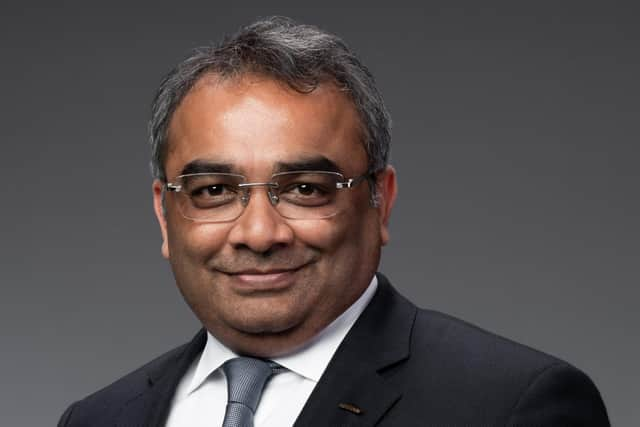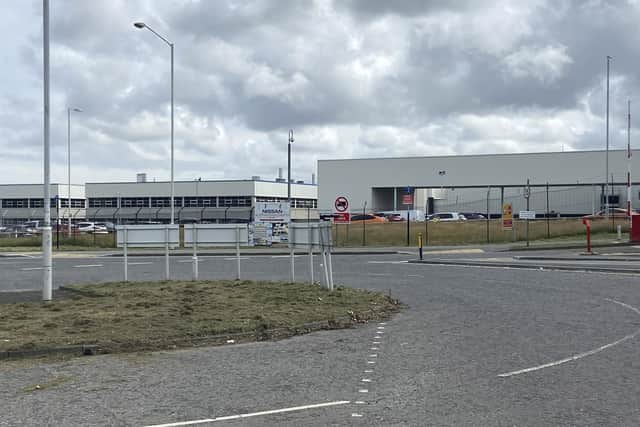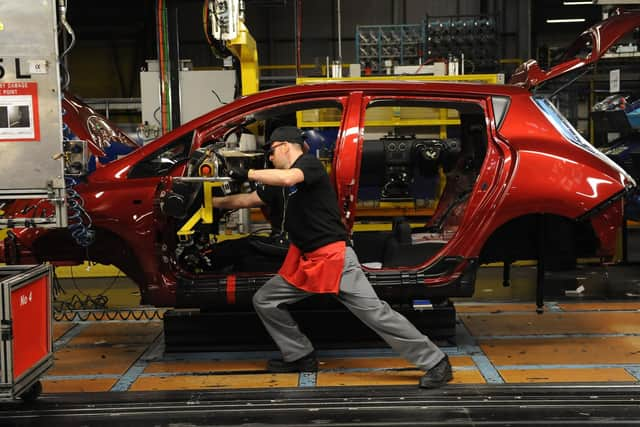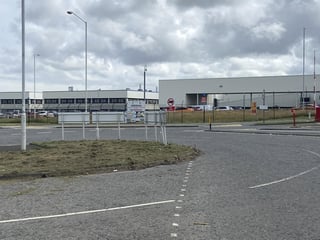Nissan boss says Brexit deal is positive for Sunderland plant
and live on Freeview channel 276
Ashwani Gupta pledged the firm would ‘take this opportunity to redefine the auto industry in the United Kingdom’.
Nissan began producing cars at its Wearside plant in 1986 and employs around 7,000 workers at the factory.
Advertisement
Hide AdAdvertisement
Hide Ad

But Mr Gupta said he believed the last minute deal would “redefine” the UK’s auto industry.
“Brexit, for Nissan is positive,” said Mr Gupta.
"“Brexit has brought the business continuity in the short-term, protects 75,000 jobs across Europe and most importantly – all of our models which we manufacture in Sunderland,”
“Brexit has brought Nissan a competitive advantage from being in the United Kingdom as one of the largest automakers, not only for the UK but also outside the UK, and that is why I say Brexit is positive for Nissan."


Advertisement
Hide AdAdvertisement
Hide AdAll components of the models manufactured at Sunderland were covered by the agreement on rules of origin apart from the 62kw/h batteries required for the new long-range version of the Leaf, he said.
Nissan’s supplier, Envision, will start producing the batteries later this year meaning all products, including the Qashqai e-Power, made in Sunderland, will qualify for the rules of origin.
Mr Gupta said it was too early to say how many new jobs the move would create.
Sunderland plant is ‘so important’


Asked if the decision marked a long-term commitment to Sunderland, Mr Gupta replied: “Our message is consistent, as of yesterday, as of today, and it will be the same tomorrow. As far as the current business conditions are kept, we are sustainable – not only Sunderland, but the whole European business case.
Advertisement
Hide AdAdvertisement
Hide Ad“If these business conditions are going to change, obviously we have to evaluate our business once again.
“In Europe, when we had to optimise our production capacity, we chose Sunderland over Barcelona.
“We have only one production facility in Europe so this means the Sunderland plant is so important for us.
“That’s why I am challenging Sunderland to keep the competitiveness."
Plant is in the running for more new models
Advertisement
Hide AdAdvertisement
Hide AdIf Sunderland continued to be competitive and the trading conditions did not change, the plant is in the running to produce more new models, bosses say.
Mr Gupta said: “Brexit, with existing conditions, has secured the sustainability and improved the competitiveness of the Sunderland plant – moving forward, the business will be as normal.
"Sunderland is already one of our most competitive plants in the Nissan world. We have a very competitive supply base, including batteries. Brexit gives us the competitive advantage, not only within the United Kingdom, but outside because in how many locations in Europe are the batteries localised?”
Mr Gupta said that having the plant in the UK post-Brexit has given them advantages over some competitors because of the deal.
Advertisement
Hide AdAdvertisement
Hide AdHe said: “In certain conditions, our competitiveness is improved, for some of the cases it is on par, so it depends on segment by segment, market share by market share.
"We will definitely have the competitive advantage on electrified vehicles.”
‘Investment continued through Brexit uncertainty’
The firm had shown faith in the Sunderland plant even while there was uncertainty over what form of a deal – if any – would be reached.
Mr Gupta said: “Even as we were going through the Brexit period, we decided on all-new Juke, we decided on all-new Qashqai, we continued to invest in the Sunderland plant.
Advertisement
Hide AdAdvertisement
Hide Ad"We never stopped our investment just because Brexit was not clear.”
Plant could return to three-shift working
The new Juke was already selling well and if the new Qashqai was a success, the plant could return to three shift working: “We have two lines and are running two shifts,” said Mr Gupta.
"If I take out the pandemic, we can easily do between 320,000 and 350,000. If all the new models are a success, I can go up to 600,000 based on three shifts and two lines."
Problems at ports are ‘peanuts’
The firm had not been hit by the delays reported at ports by other businesses since Brexit: “When I look at how Nissan has come out of the crises of tsunamis, earthquakes, floods, snow, tornadoes in the United States, and most importantly, the pandemic, the sort of problem we are seeing in the ports is peanuts.
Advertisement
Hide AdAdvertisement
Hide Ad"For a global manufacturer who is running 150 markets and 14 plants across the world, to have additional documentation, to fill a form at the border, is nothing. We were prepared for it, we have updated our software, we have updated our processes and today we are successfully running operations.”
